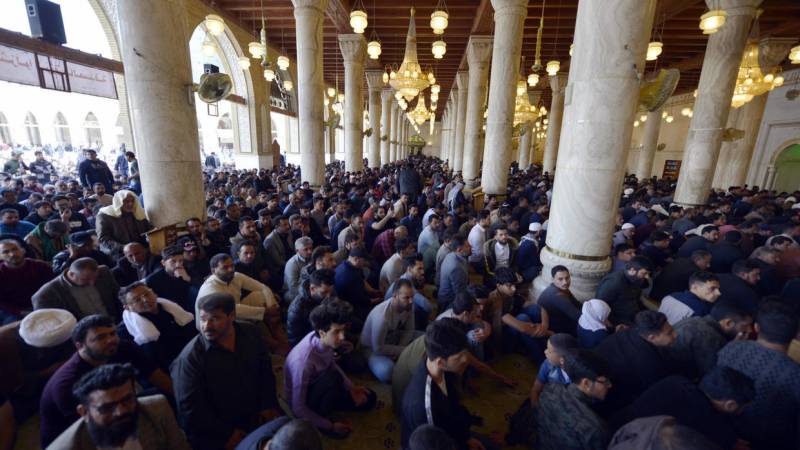Iraq announces new steps against virus, cleric's sermon cancelled

Stay tuned with 24 News HD Android App

Iraq on Friday evening announced further measures to contain the novel coronavirus, after representatives of Iraq's top Shiite cleric took the rare step of not delivering his weekly sermon to worshippers.
The Iraqi government's crisis unit said shopping centres will only open three hours a day, schools and universities will be closed until March 21, and public administrations will only open for a few hours a day, effective immediately.
Foreign nationals arriving from France and Spain will be denied entry.
Iraq has reported four coronavirus deaths and 38 infections.
Authorities had already closed the borders with neighbouring Iran, which has seen the world's second-deadliest outbreak, and banned the entry of foreign nationals travelling from there and other badly affected countries.
Schools, universities, cinemas and other public spaces had been closed for the past week, but restaurants, malls and cafes have remained open.
On Friday, representatives who usually read Grand Ayatollah Ali Sistani's address at a packed mosque, broadcast live on state television, did not appear.
Religious authorities had already closed the shrine of Imam Hussein, grandson of the Prophet Mohammed, where his sermon is usually delivered, to mitigate the risk of contagion.
The 89-year-old Sistani is based in the Shiite holy city of Najaf, south of Karbala, and never appears in public.
An official at the site in the holy city of Karbala told AFP that "the cancellation of Friday prayers at the Imam Hussein shrine is a first since 2003", the year an American-led invasion toppled veteran dictator Saddam Hussein.
Sources close to Sistani's office confirmed the unprecedented nature of the decision.
Authorities are particularly worried about coronavirus spreading via Shiite holy sites, which attract millions of pilgrims including many from Iran.
But on Friday numerous pilgrims flocked to the area near the Karbala mausoleum, and a road linking two shrines in the city was still open to pilgrims, AFP journalists said.
Provincial authorities have barred non-residents from entering Karbala province from Friday.
Sistani had dedicated part of his last two sermons to the health situation in the country of 40 million.
The virus has fuelled panic among Iraqis who say the war-ravaged country's health system cannot handle the epidemic.
In Najaf, the mausoleum of Imam Ali, son-in-law of the Prophet Mohammad, was open to the public on Friday after Shiite cleric Moqtada Sadr personally pushed for it to be re-opened.
Hundreds of his supporters gathered for prayers in the nearby town of Kufa -- Sadr's birthplace -- on Friday, AFP journalists reported.
Sadr did not attend, but sent a representative to deliver his sermon.
In Samarra, another holy Shiite site north of Baghdad, religious authorities cancelled a second pilgrimage in the space of a week.
Iran on Friday announced a surge in coronavirus cases and 17 more deaths, including an advisor to the foreign minister, raising the total number of people killed to 124.
